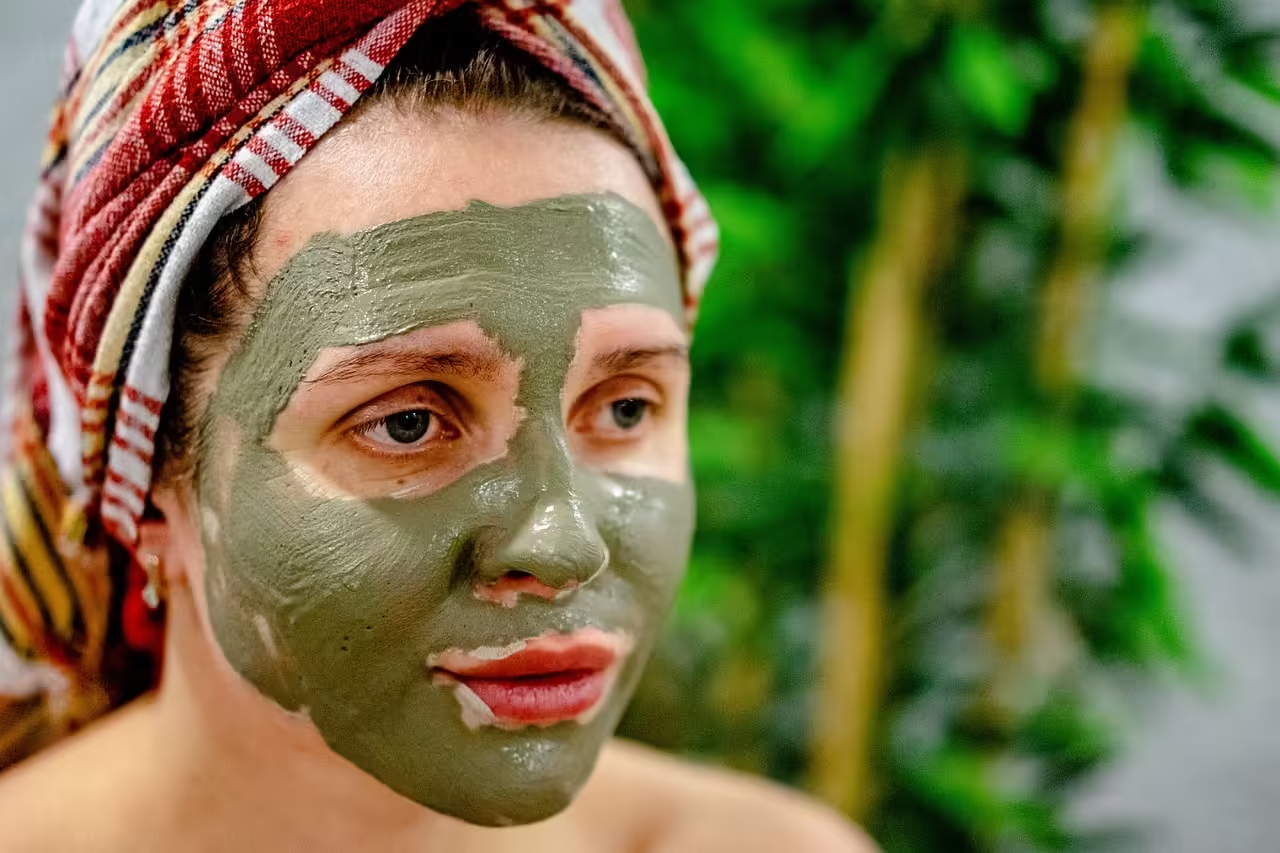In the ever-evolving world of beauty cosmetic and personal care, many enthusiasts often find themselves pondering a puzzling question: Does your skin really get used to products?
As we delve into the realm of beauty creations and the myriad of beauty creations makeup available, this inquiry has stirred debates among skincare aficionados, dermatologists, and casual users alike.
Some swear that their beloved serums and moisturizers seem to lose their effectiveness over time, while others maintain that their skin responds steadily to their tried-and-true routines.
But what does science say about this phenomenon? In this article, we’ll explore the truth behind skin adaptation, separating fact from myth to help you make informed choices for your skincare journey.

- Understanding Skin Tolerance: Separating Fact from Fiction
- The Science Behind Skin Adaptation to Skincare Products
- Mythbusting: Can Your Skin Develop Immunity to Products?
- Signs Your Skincare Routine Might Need a Change
- How to Avoid Plateauing in Your Skincare Results
- Adjusting Your Routine: Tips for Keeping Your Skin Guessing
- Debunking the Myth of Product Ineffectiveness
- Why Consistency Is Key in Skincare, Despite Popular Belief
Understanding Skin Tolerance: Separating Fact from Fiction
Understanding skin tolerance is a complex subject that often leads to confusion and misinformation. Many people believe that the skin can become accustomed to certain products over time, leading to questions like, “Does your skin get used to products and stop working?”
This belief stems from the observation that some treatments may seem less effective after prolonged use. However, the reality is a little more nuanced.
While our skin does not become “immune” to products in the way that the body can develop a tolerance to medications, various factors can explain perceived changes in how certain products perform.
One reason for this perception can be attributed to the skin’s natural adaptation processes. Regular use of some active ingredients, like retinoids or acids, can lead to changes in skin texture, hydration levels, or overall appearance.
As the skin becomes healthier or more balanced, it may appear that established products are not working as effectively as before.
This is not a sign of tolerance but rather the skin adjusting to a new state of equilibrium. Moreover, external factors such as changes in weather, diet, or stress levels can also affect how products perform over time.
Another important aspect to consider is the potential for skin issues such as irritation or sensitivity, which can develop from overuse of certain products.
If someone’s skin becomes irritated from using a product too frequently, they might mistakenly interpret this sensitivity as the product no longer being effective. In reality, the skin may be signaling a need for a break or an adjustment in the regimen.
It’s crucial to listen to your skin and recognize when it’s time to switch things up or give certain products a rest to maintain their efficacy.
Ultimately, the concept of skin tolerance is less about the skin becoming desensitized and more about finding the right balance for individual needs.
Regular assessment of how your skin responds to products is key to maintaining its health and vitality. Adopting a flexible approach, incorporating a diverse range of products, and allowing for periods of rest can help preserve the effectiveness of your skincare routine while ensuring your skin remains responsive and healthy.
The Science Behind Skin Adaptation to Skincare Products
When it comes to skincare, many people often wonder, “Does your skin get used to products and stop working?” This question highlights a common concern among skincare enthusiasts: the phenomenon of skin adaptation.
Our skin is a dynamic organ, constantly responding to various factors, including environmental conditions, hormonal changes, and the products we apply.
Over time, depending on the ingredients and their formulations, our skin can indeed adapt to the actives in these products, leading to perceived diminishing effects.
The science behind skin adaptation lies in the skin’s barrier function and its ability to regulate and respond to external stimuli. For example, when a specific active ingredient, like retinol or vitamin C, is introduced into your skincare routine, your skin initially reacts by showing improvement.
However, with prolonged use, your skin may adjust to the concentration or formulation of the product, which can lead to a plateau in visible results. This reaction can be likened to how our bodies develop a tolerance to certain medications; the skin, too, may become accustomed to a routine treatment, necessitating a reevaluation of what and how we apply.
Moreover, the skin’s cellular turnover rate plays a significant role in this adaptation process. Typically, skin cells regenerate about every 28 days. If a product has been effective in promoting cell turnover, over time, the skin may become less responsive to its benefits simply due to the natural cycle of renewal.
This underlines the importance of periodically reassessing your skincare regimen, incorporating different products or adjusting concentrations to keep the skin engaged and responsive.
Ultimately, the solution to avoiding this adaptation lies in variety and innovation in your skincare routine. Regularly introducing new ingredients or changing formulations can help maintain skin responsiveness.
It is also essential to heed your skin’s signals; if you notice a decline in effectiveness, consider alternating between products or consulting a skincare professional for personalized advice. Embracing these changes not only fosters a more effective skincare strategy but also encourages a more adaptive, vibrant complexion.
Mythbusting: Can Your Skin Develop Immunity to Products?
When it comes to skincare, a common question many people ask is, “Does your skin get used to products and stop working?” This notion of the skin developing immunity to certain products has gained traction, especially with the rise of social media skincare discussions.
Many individuals report that after consistent use of specific creams, serums, or treatments, they seem to experience diminished effects over time. However, the reality of the situation is a bit more nuanced and requires a deeper understanding of how our skin functions.
The human skin is a dynamic organ that responds to a variety of external stimuli, including the products we apply. When you consistently use a skincare product, your skin may initially show positive effects. However, over time, changes in skin conditions or the natural variability of skin responses can lead to the perception that a product has lost its efficacy.
Factors such as environmental stressors, hydration levels, and even changes in hormonal balance can affect how your skin reacts to the ingredients in your regimen. It’s not so much that your skin becomes immune to the product, but rather that it adapts to the changes and may even require different ingredients or formulations to sustain optimal results.
Moreover, the formulation itself plays a significant role in how effective a product remains over time. Some ingredients can require periodic breaks to allow the skin to reset.
This is particularly true for active ingredients like retinoids or acids, which can lead to skin tolerance if used continuously without a break. It’s beneficial to cycle your products or introduce new ones periodically to prevent potential dullness in results.
Additionally, listening to your skin’s needs and being attuned to its changing conditions is crucial in maintaining its health and responsiveness.
Ultimately, rather than viewing your skin as developing immunity to products, consider that it is an evolving canvas that might benefit from variety and adaptation. Keeping a flexible approach to your skincare regimen, being aware of how your skin reacts over time, and not hesitating to switch things up can often yield better outcomes.
A personalized approach to skincare, rather than a one-size-fits-all method, is essential in ensuring your skin continues to thrive and respond favorably to the products you love.
Read this also: Discover Sustainable Vegan Leather Alternatives For Eco-Friendly Fashion
Signs Your Skincare Routine Might Need a Change

As we navigate the ever-evolving landscape of skincare, it’s essential to stay attuned to how our skin responds to the products we use. One common concern many individuals face is wondering whether their skin gets used to products and stops working.
This phenomenon can manifest in various ways, and recognizing the signs is crucial for maintaining a healthy and effective skincare regimen. If you’ve noticed that your once-reliable moisturizer now feels less hydrating or your serum isn’t delivering the expected results, it may be time for a change.
Another indication that your skincare routine might need a reassessment is the emergence of unexpected skin issues. If you find yourself experiencing increased breakouts, irritation, or dryness despite consistent product use, it may signal that your skin is no longer benefiting from those familiar products.
Sometimes, ingredients that were once effective may become less potent for your skin as it adjusts to them. This can lead to a plateau in your skincare journey, where you aren’t seeing the improvement you desire.
Additionally, changes in your environment or lifestyle can greatly impact your skin’s needs. Seasonal shifts, diet changes, or increased stress levels can all alter your skin’s condition. If you notice that certain products seem less effective during specific times of the year or after significant life changes, it could be worth reevaluating your routine to better suit your current circumstances.
Adapting your skincare to seasonality or personal challenges can help revitalize your complexion and ensure your products remain effective.
Finally, if you find yourself frequently browsing for new products but sticking with the same old favorites, it may be time for a skincare refresh. Experimenting with different formulations, trying new ingredients, or consulting with a skincare professional can provide fresh insights and revitalization for your skin.
Embracing change in your routine not only helps tackle current skin concerns but also keeps your regimen dynamic and effective.
How to Avoid Plateauing in Your Skincare Results
If you’re on a skincare journey, you may have experienced that frustrating moment when the products that once worked wonders for your complexion seem to lose their effectiveness. This leads to the common question: does your skin get used to products and stop working?
The answer is yes, your skin can develop a tolerance to certain ingredients, resulting in a plateau in the visible results you see from your skincare routine. However, there are strategies you can employ to keep your skin thriving and avoid hitting that stagnant phase.
One effective method to prevent your skin from plateauing is to rotate your products periodically. This doesn’t mean you should toss your favorite serum or moisturizer; rather, alternating between different formulations or active ingredients can help maintain your skin’s responsiveness.
For instance, if you typically use a retinol product every night, consider reducing its frequency or combining it with a vitamin C serum on alternate days. This rotation not only keeps your skin guessing but also allows you to reap the benefits of multiple beneficial ingredients without overwhelming your complexion.
Another technique to consider is incorporating layering into your routine. Instead of relying solely on one or two hero products, diversify your regimen with serums, essences, and oils that target specific concerns. Layering enables you to address various skin issues simultaneously while preventing over-dependence on a single product. Additionally, stay attuned to how your skin responds to different formulations; signs of dullness or irritation could indicate that it’s time to refresh your approach.
Lastly, be mindful of external factors that can influence your skin’s behavior. Environmental changes, stress levels, and even diet can play significant roles in skin health and performance. Regularly reassessing your routine based on these influences ensures that your skincare adapts to your ever-changing needs, keeping stagnation at bay. By embracing these strategies, you can pave the way for sustained results and maintain a radiant complexion.
Adjusting Your Routine: Tips for Keeping Your Skin Guessing
When it comes to skincare, one common question that often arises is, “Does your skin get used to products and stop working?” The answer can be a bit nuanced, as our skin can indeed become accustomed to certain ingredients, leading to decreased effectiveness over time.
To keep your complexion radiant and responsive, it’s important to adjust your routine periodically. This doesn’t mean you have to overhaul your entire skincare regimen frequently, but incorporating new products or changing up your methods can give your skin the stimulation it needs.
One approach is to introduce new active ingredients gradually. For example, if you’ve been using the same vitamin C serum for months, consider trying a formulation with a different concentration or perhaps adding a product featuring a complementary ingredient, like ferulic acid or hyaluronic acid.
The same principle applies to exfoliants—switch between chemical exfoliants, such as AHAs and BHAs, and physical scrubs to prevent your skin from plateauing in its improvement. Keeping your skin guessing in this way can help you avoid stagnation and maintain that fresh glow.
Additionally, seasonal changes can warrant adjustments in your skincare routine. As temperatures fluctuate, your skin may require different levels of hydration or even a change in texture. During colder months, incorporating richer creams and oils ensures your skin remains well-moisturized, while lighter formulations might be more suitable for the summer heat.
Embrace the idea of trial and error; don’t hesitate to test products that address seasonal concerns, as this helps promote a dynamic and responsive skincare strategy.
Finally, pay attention to your skin’s reactions. If you notice signs of sensitivity or irritation after introducing something new, it might be time to dial it back or pivot to gentler options. Listening to your skin is crucial; it’s a reflection of your overall health, and giving it the variety it craves can lead to a vibrant, youthful appearance. By making small, intentional tweaks to your routine, you can ensure that your skin continues to thrive, defying the limits of predictability.
Debunking the Myth of Product Ineffectiveness
In the world of skincare and beauty, a common concern that often arises is the idea that “does your skin get used to products and stop working.” Many consumers have voiced the belief that after consistent use of a particular product, such as a serum or moisturizer, its effectiveness diminishes over time.
This notion can be both perplexing and disheartening, especially when individuals invest in high-quality products and expect tangible results. However, it’s essential to scrutinize this myth and understand the science behind our skin’s adaptation.
First and foremost, the perception that products become ineffective often stems from unrealistic expectations or a lack of understanding of how skin functions. Our skin is dynamic, constantly responding to various internal and external factors, which can create fluctuations in its appearance and texture.
As we use certain ingredients, such as retinoids or exfoliants, our skin may initially show dramatic improvement, but a plateauing effect can occur as our complexion adjusts. This doesn’t mean the product has stopped working entirely; it may simply require a change in usage or complementary ingredients to maintain results.
Moreover, lifestyle factors such as diet, stress levels, and environmental changes play a significant role in how our skin behaves. A shift in any of these elements can influence how our skin reacts to products, leading to the impression that they are no longer effective. It’s crucial to approach skincare with a holistic mindset, acknowledging that a single product is just one piece of the puzzle. Instead of abandoning a product at the first sign of stagnation, consider tweaking your routine or consulting a skincare professional to optimize your regimen.
Ultimately, debunking the myth of product ineffectiveness is about fostering patience and understanding the nature of skin. Regular evaluation of one’s skincare routine and being open to adjusting it as needed can lead to sustained benefits.
Rather than focusing solely on immediate results, it’s more productive to embrace a journey of evolving skin care—recognizing that sometimes, minor adaptations can reignite the transformative effects of beloved products. By cultivating a deeper relationship with our skincare routine, we move toward proactive care rather than reactive frustration.
Why Consistency Is Key in Skincare, Despite Popular Belief
In the realm of skincare, the belief that products can “stop working” after a certain period often leads to a cycle of constant change and experimentation among consumers. Many individuals find themselves on an endless quest for the next miracle product, assuming that their skin has adapted to their current regimen and that it no longer delivers the desired results.

This notion raises the question: does your skin get used to products and stop working? The answer is more nuanced than a simple yes or no, and understanding this complexity can illuminate the importance of consistency in skincare routines.
Consistency is paramount in achieving long-lasting results. Skin is a dynamic organ that requires time to respond to treatments and ingredients thoroughly.
When users switch products frequently, they interrupt this crucial adaptation period. Many active ingredients, such as retinoids or vitamin C, work best when applied consistently over time, allowing the skin to build tolerance and maximize their benefits. By sticking with a reliable routine, individuals may actually experience more significant improvements and evolution in their skin’s texture and appearance.
Moreover, skincare is not solely about immediate gratification. While instant results can be appealing, sustainable change often requires patience and dedication. Frequent switching can lead to disruption in the skin barrier, causing irritation or sensitivity.
This may, in turn, create a false impression that existing products are ineffective, prompting yet another round of product hunting. Instead, committing to a well-formulated regimen allows for a deeper understanding of how one’s skin reacts, leading to informed decisions about future adjustments rather than rash changes based on immediate perceptions.
Ultimately, the journey to healthier skin involves embracing a thoughtful approach rather than a transient one. While it’s tempting to think that the skin adjusts and renders products ineffective, focusing on consistency provides a more constructive path. Instead of chasing quick fixes, invest time and energy in nurturing your skin through regular use of your chosen products, and you’ll likely uncover the true potential of your skincare routine.
Share this content:

